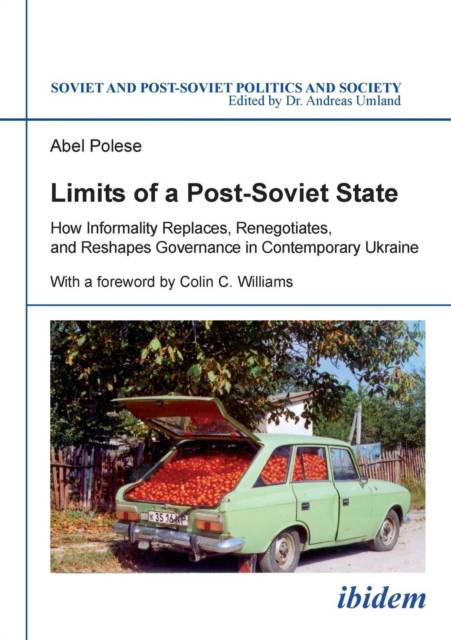
- Afhalen na 1 uur in een winkel met voorraad
- Gratis thuislevering in België vanaf € 30
- Ruim aanbod met 7 miljoen producten
- Afhalen na 1 uur in een winkel met voorraad
- Gratis thuislevering in België vanaf € 30
- Ruim aanbod met 7 miljoen producten
Zoeken
Limits of a Post-Soviet State
How Informality Replaces, Renegotiates, and Reshapes Governance in Contemporary Ukraine. With a foreword by Colin C. Williams
Abel Polese
€ 36,95
+ 73 punten
Omschrijving
This book illustrates why and how informality in governance is not necessarily transitory or temporary, but a constant in most systems of the world. The difference between various administrative structures is not whether informality is present or not, but where, in which areas, it is located. The essays gathered in this volume demonstrate that, in some cases, informal mechanisms are self-protective, while, in others, they are perceived as 'normal' responses and a set of tactics for individuals, classes, and communities to respond to unusual demands. Where expectations-of the state, a company, or some commission-are too far from citizens' existing models of normative behavior, informal behavior continues to thrive. Indeed, new tactics are adopted in order to cope with disjunctions between theory and reality as well as to serve as contrasts to values imposed by a center of power, such as a central state, a city administration, or the management board of a large company. The focus of the papers contained in this book is two-fold and rests on an analysis of phenomena manifesting themselves "beyond" and "in spite of" the state. The first part deals with areas where the state is not always, or only marginally, active whilst the second analyzes activities performed in conflict with state regulations, i.e. behavior often studied from a criminal and legal standpoint.
Specificaties
Betrokkenen
- Auteur(s):
- Uitgeverij:
Inhoud
- Aantal bladzijden:
- 258
- Taal:
- Engels
- Reeks:
- Reeksnummer:
- nr. 154
Eigenschappen
- Productcode (EAN):
- 9783838208459
- Verschijningsdatum:
- 1/06/2016
- Uitvoering:
- Paperback
- Afmetingen:
- 149 mm x 211 mm
- Gewicht:
- 348 g

Alleen bij Standaard Boekhandel
+ 73 punten op je klantenkaart van Standaard Boekhandel
Beoordelingen
We publiceren alleen reviews die voldoen aan de voorwaarden voor reviews. Bekijk onze voorwaarden voor reviews.











